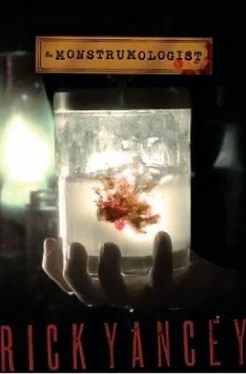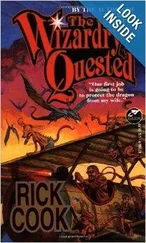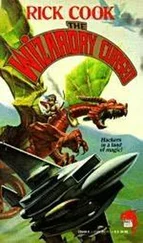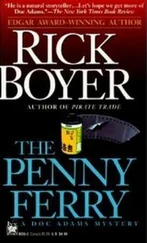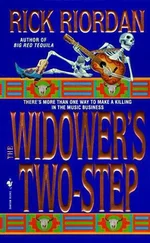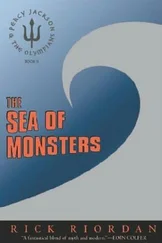“Both shoulders have been dislocated,” the doctor said. He ran his hands down the woman’s arms, deft fingers pressing into her still-pliant flesh. “The right humerus has been broken.” Now to the fingers locked around the tiny body. “Five fingers broken, two on the right hand, three on the left.”
He tried to pry the baby from her hands, his jaw clenching with the effort. Thwarted by the stubborn will of rigor mortis, he relented and examined the baby without removing it from the frozen arms of her mother.
“Multiple puncture wounds and lacerations,” he said. “But the body is intact. The baby bled to death or her lungs were crushed. Or she was smothered by her mother’s breast. A cruel irony should that be the case.
“How strong is the maternal instinct, Will Henry! Though they tore her shoulders from the sockets and broke the very bones that held it, she did not surrender her child. She held firm. Though they broke her arms and tore off her head, still she held firm. Held firm! Even when she became a cruel imitation of the things that devoured her brood, she held firm! It is a wonder and a marvel.”
“You’ll forgive me, Warthrop, if I do not consider what happened here in any way marvelous,” said the constable with disgust.
“You mistake me,” rejoined Warthrop. “And you judge prematurely things unknown to you. Do we judge the wolf or the lion? Do we blame the savage crocodile for obeying the imperatives of nature’s design?”
As he spoke, the doctor considered the bloody pietà at his feet, his attitude now wholly introspective and remote, his face an inscrutable, emotionless mask. What tempests, if any, raged hidden beneath the surface of that icy facade? Did the macabre tableau remind him of the words spoken only hours before? The unfortunate Mr. Gray should keep them satisfied, at least for another day or two. Words spoken with the characteristic self-assurance that often was mistaken for arrogance-or would it not be a mistake to call it that? I would be less than honest if I said I understood this man to whom I owe so much, this man who took the homeless, orphaned boy I was and sculpted him into the man I became. How oft do they rescue or ruin us, through whimsy or design or a combination of both, the adults to whom we entrust our care! The truth I confess is that I understand him not. Even with the gift of much time and the perspective it grants us, I still do not understand Dr. Pellinore Xavier Warthrop. Did he honestly accept the premise that he was blameless for this horrific slaughter of six innocents? What convolutions and contortions of logic did he employ to ignore the symbolic significance of the Stinnets’ blood upon his hands? Or did he look upon the facts, with the same pitiless stare that Eliza Bunton had received, to reach the conclusion obvious to even a twelve-year-old boy? Each possibility was as likely as the other, and neither discernable by his stoic expression. He betrayed nothing, regarding in silence the headless mother and the babe broken against her breast, the two curled at his feet like discarded offerings to a bloodthirsty god.
“Where is the witness?” he asked.
We paused in the yard to clear our lungs of death’s foul miasma and for the constable to refill his pipe. His face was flushed, and the fingers holding the match quivered as he lowered the flame to the alabaster bowl.
“I must confess to you, Warthrop, this is wholly outside the range of my experience.”
Morgan’s gaze strayed to the words etched over the rectory door. The Lord is my shepherd. He did not appear comforted. Indeed, he seemed shaken to his spiritual marrow. As the town constable he had witnessed more than his fair share of man’s inhumanity to man, from petty thievery to malicious battery. None of it had prepared him, however, for this naked confrontation with gross injustice, this horrific reminder that despite all the honors with which we shower ourselves, we are, ultimately, fodder, mere meat for the inferior, soulless things of which I dreamt the night before, no less than us the Creator’s children. It could not have been pleasant, for a man of the constable’s limited experience and sensitive temperament, to be confronted with the Anthropophagi ’s savage mockery of our human aspirations, our absurd grandiosities and ambitions, our ever-preening pride.
“He’s in the sanctuary,” he said. “This way.”
We followed him down the gravel path toward the little church that faced the lane leading to Old Hill Cemetery Road. Another guard was stationed there. Without a word he stepped aside to let us pass. The interior was cool and dark. The morning light streamed in broken beams through the stained glass of the windows, shafts of blue and green and red cutting through the dusty air. Our footfalls echoed upon the ancient boards. Two shadowy figures slouched in the front pew. Upon our approach, one rose, a rifle in his arms. The other did not move, did not so much as raise his head.
Lowering his voice, the constable informed the man with the rifle that the hearses would be arriving soon and he should wait outside to help with the removal of the victims. The man did not seem particularly pleased with the assignment, but acknowledged his orders with the briefest of nods before taking his leave.
The guard’s footfalls died away. We were alone with our witness. Slumped in the pew, arms folded over his chest, hands gripping tight the edges of the blanket wrapped around his bare torso, he was but a boy of fifteen or sixteen, I guessed, with dark hair and large, bright blue eyes that appeared all the larger owing to the narrowness of his face. Though he was seated, I discerned he was tall for his age; his legs seemed to stretch a mile before him.
“Malachi,” said the constable gently. “Malachi, this is Dr. Warthrop. He’s here to…” The constable paused, as if he were unsure what service the doctor could perform. “Well, help you.”
A moment passed. Malachi did not speak. His full lips moved soundlessly, as he stared, like some Eastern mystic, at a space beyond our mortal sphere, looking without but seeing within.
“I am not hurt,” he said finally, in barely a whisper.
“He isn’t that kind of doctor,” the constable said.
“I am a scientist,” said Warthrop.
Malachi’s strikingly blue eyes strayed to my face and remained fixed, unblinking, for a few agonizingly uncomfortable seconds.
“Who are you?” he asked.
“This is Will Henry,” answered the doctor. “He is my assistant.”
Though Malachi’s eyes remained on my face, he had ceased to see it. It was unmistakable, the transition from seeing to not-seeing, the fading of his focus, or, better put, the refocusing to something altogether different, something that only he could see. We warred for his attention with this thing unseen. I knew not what the others were thinking; for myself, I wondered at his condition. His psyche had clearly suffered horrific wounds, yet physically he had emerged unscathed from the ferocious attack. How could that be?
The doctor went to one knee before him. The movement did not distract the stricken lad; his sight remained fixed upon my features, and not so much as an eyelash twitched when Warthrop laid a hand upon his outstretched thigh. In a soft voice the doctor spoke his name, squeezing gently the flaccid muscle beneath his hand, as if calling him back from that faraway, inapproachable place.
“Malachi, can you tell me what happened?”
Again his lips moved and no sound emerged. His otherworldly stare unnerved me, but as one who stumbles upon a terrible accident, I could not tear my eyes away from the awful gravity of his gaze.
“Malachi!” the doctor called quietly, now shaking the limp leg. “I cannot help you unless you tell me-”
Читать дальше
